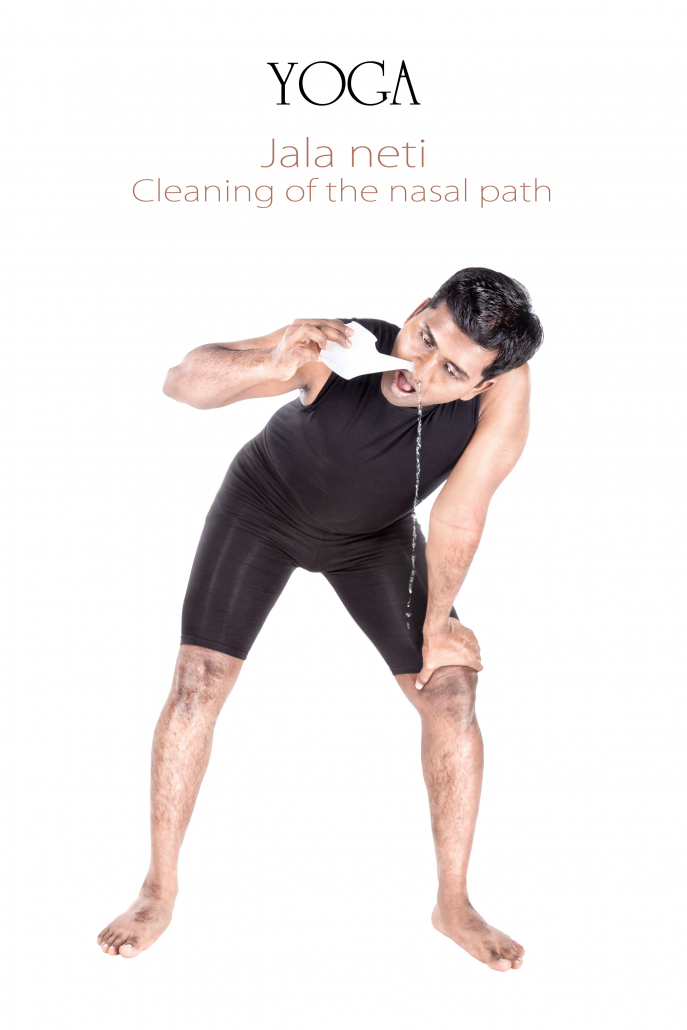Nasal Irrigation: A Guide to Neti
Introduction to Neti
Neti is a traditional nasal irrigation technique that uses a saline solution to cleanse the nasal passages. It is a practice rooted in Ayurveda, an ancient Indian system of medicine that emphasizes wellness informed by and in balance with nature. By gently flushing the sinuses, neti can alleviate various nasal conditions and improve respiratory health.
Historical Roots
The practice of neti has been a cornerstone of Ayurvedic medicine for centuries, designed to enhance breathing and support the natural cleansing processes of the respiratory system. It is often used as a preventative measure to maintain nasal health and as a therapeutic intervention for respiratory ailments.
Essential Neti Products
To perform neti safely and effectively, a few products are essential:
- Neti Pot: A small, specially designed pot used for nasal irrigation.
- Saline Salt Packs: These are pre-measured and mixed to ensure the correct isotonicity.
- Distilled Water: Ensures that the irrigation solution is free from contaminants.
- Tissues: For gently drying the nose after irrigation.
Benefits of Nasal Irrigation
Practicing neti can offer numerous health benefits:
- Cleanses the Nasal Passages: Removes dust, pollen, and other allergens.
- Reduces Mucus Buildup: Helps clear out blocked nasal passages.
- Decreases Inflammatory Agents: Reduces the presence of elements that cause nasal and sinus inflammation.
- Enhances Natural Cleaning: Improves the nasal cavities’ self-cleaning capabilities.
- Restores Breathing Ease: Opens the nasal passages to ease breathing.
- Moisturizes: Helps maintain moisture in the nasal cavities.
- Reduces Medication Dependence: Frequent users may find a reduced need for nasal sprays and other medications.
Appropriate Conditions for Neti Use
Neti is particularly beneficial for:
- Sinus Congestion and Infections
- Allergic Rhinitis
- Common Colds
- Post-Nasal Drip
- Recovery from Nasal Surgery
- Chronic Rhinosinusitis
Potential Risks and Precautions
While neti is generally safe, it is crucial to follow proper guidelines to avoid risks:
- Avoid in Infants/Small Children: Their nasal passages are too delicate for this practice.
- Sterile Water is Mandatory: Use only distilled, sterile, or previously boiled water to prevent infections.
- Watch for Protective Mucus Removal: Excessive use might strip away protective mucus.
- Contraindications: Avoid neti if you have ear infections, blocked ears, recent facial trauma or sinus surgery.

Step-by-Step Neti Guide
- Preparation: Wash your hands thoroughly. Mix the saline solution in a clean neti pot with lukewarm, sterile water.
- Irrigation: Lean over a sink, tilt your head to one side, and gently insert the neti pot’s spout into the upper nostril. Allow the solution to flow through and exit the opposite nostril. Use about half the solution.
- Completion: Gently blow your nose without complete closure to avoid pressure on the eardrums. Repeat the process on the other nostril. Discard any remaining solution and clean the neti pot.
Safety Guidelines
- Water Quality: Never use untreated tap water. Boil tap water for at least five minutes if distilled water isn’t available.
- Personal Use: Do not share your neti pot to prevent cross-contamination.
- Regular Cleaning: Follow a strict cleaning regimen for your neti pot. For copper or ceramic pots, boil for 10 minutes every three months; or for plastic nasal irrigation devices, replace every 3 months.
- Saline Solution: Use only isotonic or hypertonic saline solutions that are pH-balanced and preservative-free. Avoid homemade salts due to potential impurities.
Recommended Frequency
Consult with a healthcare provider for personalized advice, but generally, once daily is beneficial, particularly during allergy seasons or after exposure to irritants.
Further Reading and References
- Saline Nasal Irrigation for Upper Respiratory Conditions – American Family Physician
- Effective Neti Pot Usage – Healthline
- Nasal Irrigation Guidelines – NeilMed
Conclusion
Neti is a valuable addition to anyone’s health regimen, particularly for those struggling with nasal and respiratory issues. By incorporating this ancient practice into your daily routine, you can enjoy the profound benefits of clearer breathing and improved nasal health. Always ensure to follow the safety guidelines to maximize benefits and minimize risks.
Disclaimer: The information in this blog post is provided for general informational purposes only and is not intended as medical advice. For personalized advice or treatment, please register as a patient at Radiance Healthcare, or consult with a qualified healthcare provider for any medical concerns.

